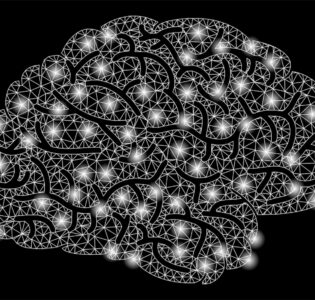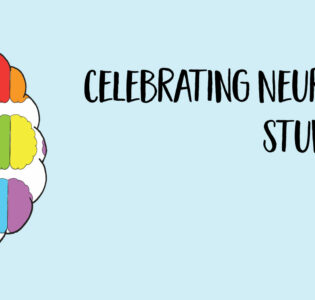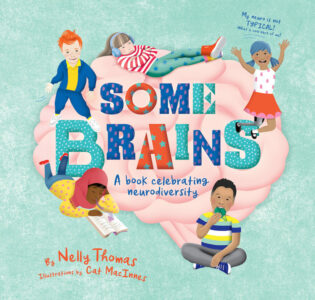Some Brains
Interview with author of ‘Some Brains’ – Nelly Thomas
Nelly Thomas performed stand-up comedy around Australia for 16 years. She now works as a speaker, author and media personality. We asked Nelly about her new book, ‘Some Brains’.
What is Some Brains about?
NT: It is a picture book for kids aged 0-7 about neurodiversity. Well, I say it is for kids – as with all my kids’ books, it’s aimed just as much at the adults reading it as the kids, so they learn how to understand neurodiversity and a positive way to frame it for kids. It starts from the premise that neurodiversity is an essential part of biodiversity. I object strongly to the idea that Autism, for example, is a ‘disorder’. While it’s true that Autistic people face many challenges, they also have many strengths that others don’t. Without Autism, we don’t get Einstein, Picasso or Greta Thunberg. Diversity is essential to human progress.
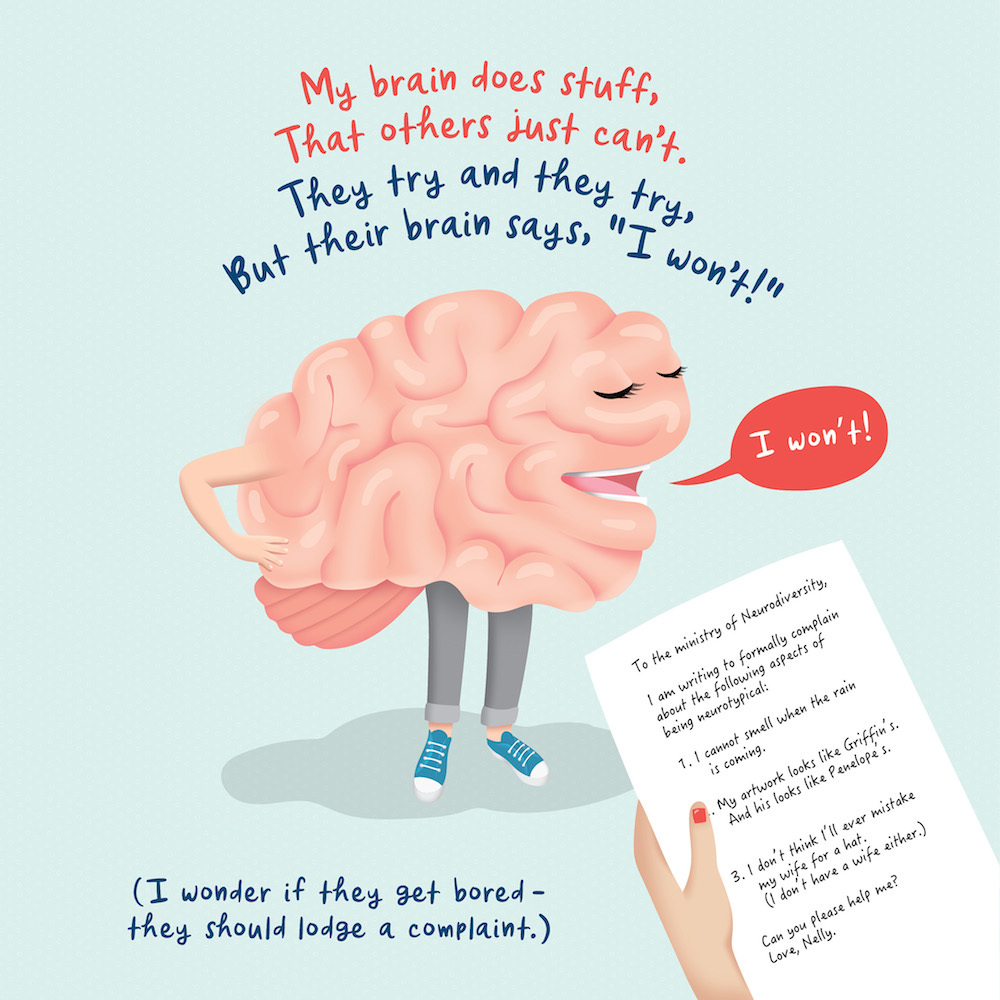
What inspired you to write Some Brains?
NT: I have a child with Autism and when I was looking for books for her, I couldn’t find many – any really – that I was satisfied with. I applied the Toni Morrison quote, “If there’s a book you want to read that hasn’t been read yet, then write it”. All the books I found for her age group were frankly, quite depressing. They were about being ‘different’ and the need to overcome adversity. Again, yes there are challenges, they are not inherent to Autism – they are inherent to how we see, treat and understand people with Autism. A classic example is the honesty of people on the spectrum. We tell kids to be honest and yet when Autistic kids tell the truth – “I’m bored”, “I don’t like that present”, “this house smells” – we tell them they’re being rude. There has to be a balance between not hurting others’ feelings, but also recognising that truth is valuable and isn’t always a personal attack; it’s just their truth.
How can parents and educators support neurodiversity awareness and celebration of differences?
NT: The main thing is to look for kids’ strengths, not weaknesses. Start from the premise that everyone has a different brain and they all have strong parts and not so strong parts. While I am excellent at writing, I am very impatient. While someone else is very patient, they are not decisive. We can all work together to adapt – all of us, not just the Autistic kids – to understand each other.
I also think the word ‘disorder’ should be totally eliminated – it’s negative and medical. At the same time, saying that ‘we’re all on the spectrum’ isn’t helpful. We’re not all on the spectrum and this idea really obscures the significant challenges kids on the spectrum face at school, home and pretty much everywhere. If we do that, we don’t look at simple ways to help them: reduce sensory stimuli, be patient (the Maori word for Autism means ‘in her own time’), know the difference between a tantrum and a meltdown… there’s so many things.
If I could ask schools to do one thing to really help neurodiverse kids it would be: MANAGE LUNCHTIME. Lunch and recess stretch out like a horror show for many of these kids and they have to face it two or three times a day. If quiet areas are provided and/or structured adult-supervised activities (even better) they can relax. Just sending Autistic kids out into the school yard and expecting them to cope is like asking a kid with a physical disability to just walk. This is one of the main reasons neurodiverse kids end up school refusing – it’s not the school work, it’s the social pressure.
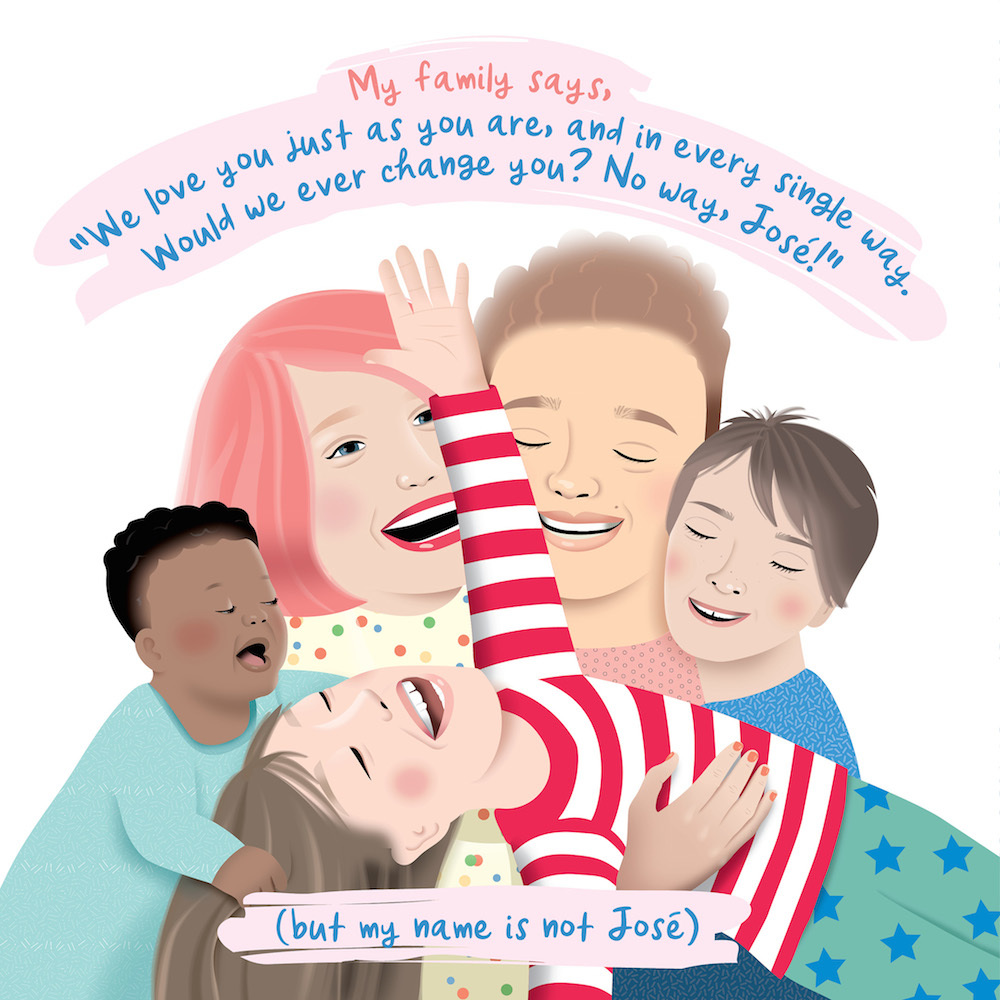
What message do you hope that readers will take from Some Brains?
NT: That neurodiversity is good. I have a good friend – a well-known writer – who is dyslexic. She takes literally days to read a short novel but has written many herself. I firmly believe that her brain power is used thinking great ideas. Sure, she can’t spell but she can dream up ideas most of us neurotypicals could never manage. My daughter has trouble with numbers, but at the age of three asked profound things like, “why can’t we see wind?” and “is time an illusion?”. If you think of ‘brain power’ as a pie chart, my own brain uses half of it reading social cues, remembering to do the washing and things like that. My daughter’s brain uses a tiny bit for those things – and therefore they’re often missed – but uses a big chunk to wonder about whether or not God is made of atoms, or if there is a God and whether God is a boy or girl. Her brain is not better or worse than mine, it is different.
When will Some Brains be released and where can it be purchased?
NT: You can buy it direct from me now: It will be officially launched and out in normal bookshops next March 2020!
A final word..
NT: Understanding conditions like Autism is important for all kids and all adults – not just neurodiverse ones. We all know someone Autistic, Dyslexic, Dyspraxic, and the like. If we can understand them better, we can relate to them better. If you have parents, friends, grandparents, teachers etc who don’t ‘get it’, they will benefit from a book like this.


